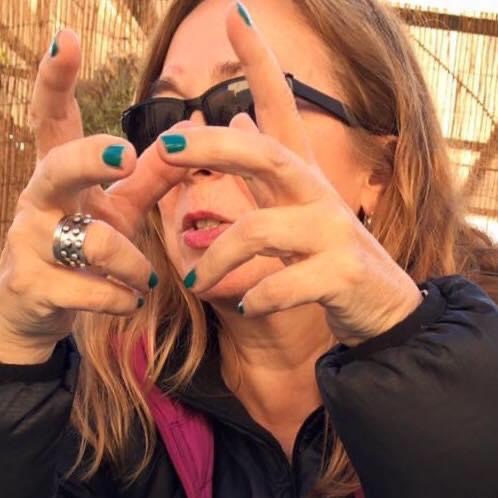Search
To search for an exact match, type the word or phrase you want in quotation marks.
A*DESK has been offering since 2002 contents about criticism and contemporary art. A*DESK has become consolidated thanks to all those who have believed in the project, all those who have followed us, debating, participating and collaborating. Many people have collaborated with A*DESK, and continue to do so. Their efforts, knowledge and belief in the project are what make it grow internationally. At A*DESK we have also generated work for over one hundred professionals in culture, from small collaborations with reviews and classes, to more prolonged and intense collaborations.
At A*DESK we believe in the need for free and universal access to culture and knowledge. We want to carry on being independent, remaining open to more ideas and opinions. If you believe in A*DESK, we need your backing to be able to continue. You can now participate in the project by supporting it. You can choose how much you want to contribute to the project.
You can decide how much you want to bring to the project.
Not one person budged from their seat in the screening of the feature film documentary, Las Muertes Chiquitas. that Mireia Sallarès made in Mexico. A piece that lasts a little over four hours, condensing such depth that it is impossible not to notice the breathing of the more than thirty women interviewed, taking it in turn to speak. The European premiere was at Can Xalant in Mataró, as part of a workshop that the artist carried out with a group of women from the district. And I can assure you that on that occasion not one person moved from their seat while watching the documentary, it was just impossible to resist the magnetism of the brilliance of the women’s pupils as they talked to us.
This audio-visual piece forms part of a broader project that the artist has made over several years in Mexico, and is called Las Muertes Chiquitas in reference to female orgasms. The work interweaves the voices of more than 30 women from different zones in the country; women of different ages, social strata, professions and religions. For many minutes, that aren´t eternal so much as intense, the women talk about their experience of sex, death, love, the family, orgasms, guerrillas and prostitution, as if in conversation with each and every one of us.
It is undoubtedly an excellent piece and a highly recomended visit. Mireia Sallarès offers us a time of emotions and experiences that pick up the threads of the catchphrase, the body of the woman is a battled field, that the personal is political. With the documentary, and also in the book published about the same experience, (Mireia Sallarès. Las Muertes Chiquitas. Barcelona, Blume, 2009),we can continue to reflect upon the political condition of being a woman, from pleasure to the armed struggle, transexuality, prostitution, illness, exile, the theology of liberation, feminicide and ethical commitment.
Though at the moment we can´t see the entirety of this feature film, there is the possibility to watch a trailer and sense the impossibility of moving from your seat while sharing this chat between women. There are times when I would like to be the director of a large contemporary art museum and be able to invite an artist like Mireia Sallarès. Strong and fragile, all at once.

Pilar Bonet Julve is a researcher and teacher. She has a degree in Medieval History and a PhD in Art History from the UB, where she teaches contemporary art and design, art criticism and curating. She is interested in the overflowing and political spaces of art, she is not motivated by heraldic criticism or the vase exhibition. A specialist in the life and work of the Catalan medium and artist Josefa Tolrà, she follows in the footsteps of visionary women as an experience of new humanity. She has recently presented exhibitions on irregular creativity: Josefa Tolrà and Julia Aguilar, Les Bernardes de Salt; ALMA. Médiums i Visionàries, Es Baluard Museum, Palma; La médium i el poeta. An astral conversation between Josefa Tolrà and Joan Brossa, Fundació Brossa. Writing and editing pacifies his soul. She manages the research group Visionary Women Art [V¬W].
www.josefatolra.org
@visionarywomenart
@josefatolra
@pilarbonetjulve
@artscoming
"A desk is a dangerous place from which to watch the world" (John Le Carré)